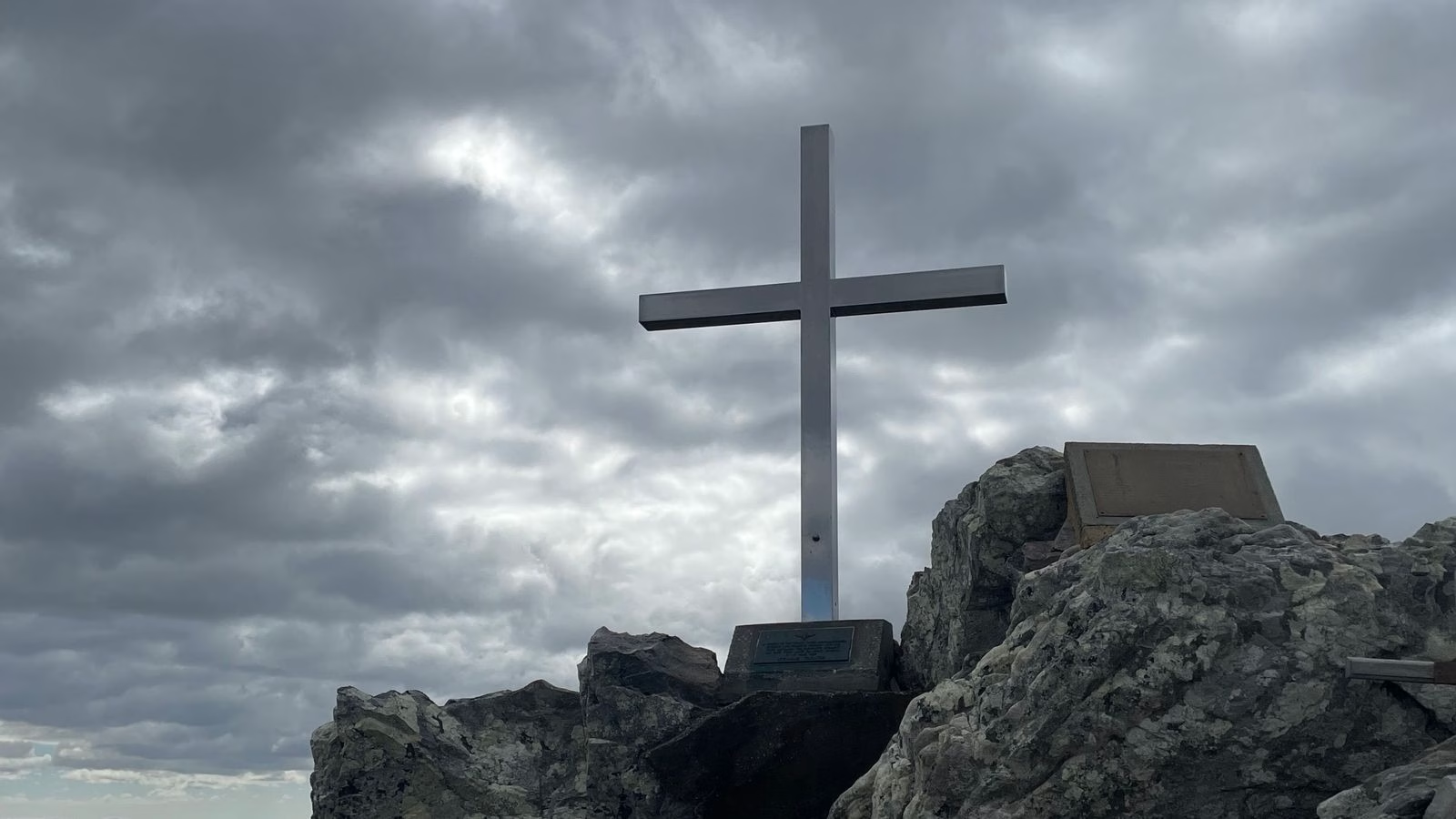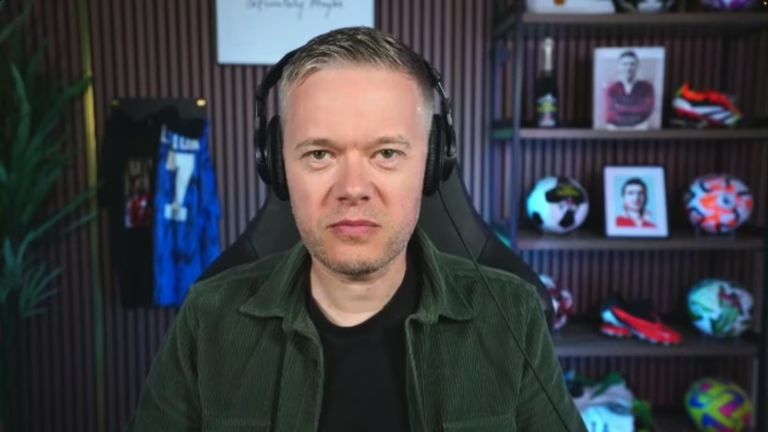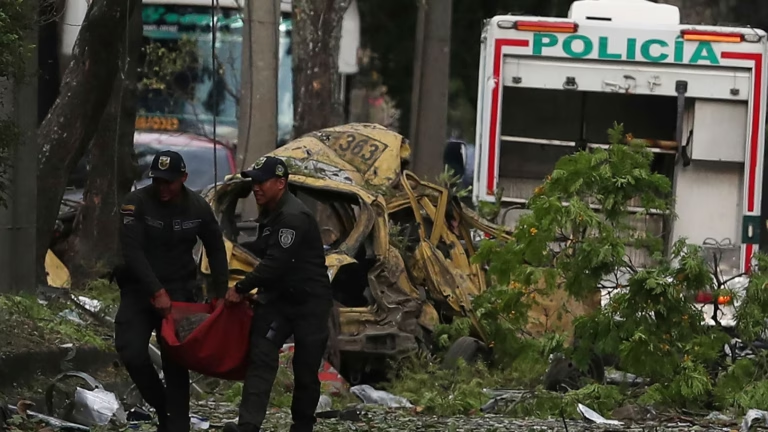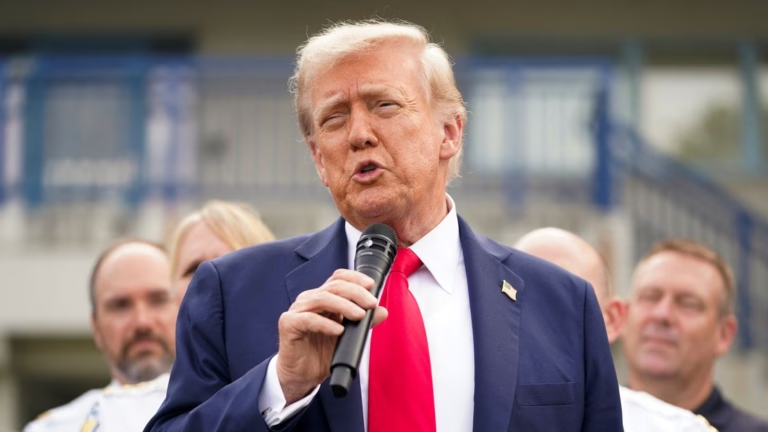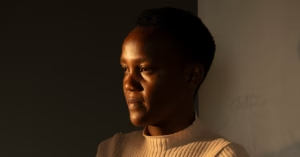In the windswept hills near the capital, Port Stanley, remnants of the conflict remain visible, such as the shells of destroyed helicopters and abandoned military equipment rusting on significant rocky outcrops and boggy valleys.
Despite these relics, the few thousand residents of the Falkland Islands, an archipelago about half the size of Wales, continue to remember the conflict vividly.
‘I’m not going to speak with a gun at my back.’
Patrick Watts was broadcasting the news of the unfolding invasion on Falklands Radio on 1 April 1982 when Argentine soldiers entered the studio joyfully.
The live recording of his interaction with the invaders is now documented.
“I’m not going to speak with a gun in my back,” Watts told the Argentine commander.
Read more:
Giving you a side-eye like a 3ft yob in a wetsuit – the Falklands’ penguins
What we learnt flying over the world’s largest iceberg
The megaberg: Bigger than London and five times the weight of Mt Everest
Speaking 43 years later in the same studio, Patrick vividly recalls his mood that morning.
“For them, the islands, they have always said belong to them. And it’s expressed in their emotions when they come up the passage shouting at each other and they open the door and they come in, they have guns,” he says.
“I then become quite belligerent.”
On the recording, he’s heard ordering the Argentine commander to order his men to remove their guns from the studio, stop shouting, and to refrain from smoking.
“I hate smoking. No smoking in my studio,” Mr Watts is heard saying. “And he tells them and of course, they’re still shouting and screaming. And then you can hear him shouting, ‘Silencio, silencio’ (Silence, silence).”
Mr Watts’s calm defiance has come to symbolize the collective stance of this British Overseas Territory ever since.
But given Argentina has consistently maintained its claim to the Falklands, the population’s desire to remain British isn’t the only reason for the current status quo.
‘The threat hasn’t changed’
Since the conflict ended, a UK military presence has been maintained on the islands.
A 2,000-strong garrison of troops and a squadron of fighter jets and transport aircraft are stationed at Mount Pleasant, acting as a deterrent to Argentina, just over 200 miles away, and as a means of countering their continued claim over the Falklands.
However, the UK is over 7,000 miles away in a world now dominated by leaders with territorial ambitions.
And the UK’s military commitment to the Falklands is scrutinized as the government faces pressure to prioritize defense spending closer to home.
Crossing the rugged terrain, the islands’ remoteness and inhospitability to outsiders become evident.
With military tensions escalating in Europe as US President Donald Trump urges an end to the war in Ukraine, concerns about security have risen, leaving Falkland Islanders potentially less secure than in the past four decades.
“Argentina is always a bit of a shadow over our shoulder,” says Leona Roberts, a member of the Falkland Islands legislative assembly.
“The threat and the situation… has not changed.”
However, she is confident the UK will continue to protect the Falklands. Successive governments have supported the military presence, including Sir Keir Starmer’s.
Argentina’s President Javier Milei, an ally of Mr Trump, has said he will not relinquish the claim to sovereignty over the Falklands, but nor will he seek conflict with the UK.
People here hope their desire to remain British will always outweigh the physical distance between them and their protector.



